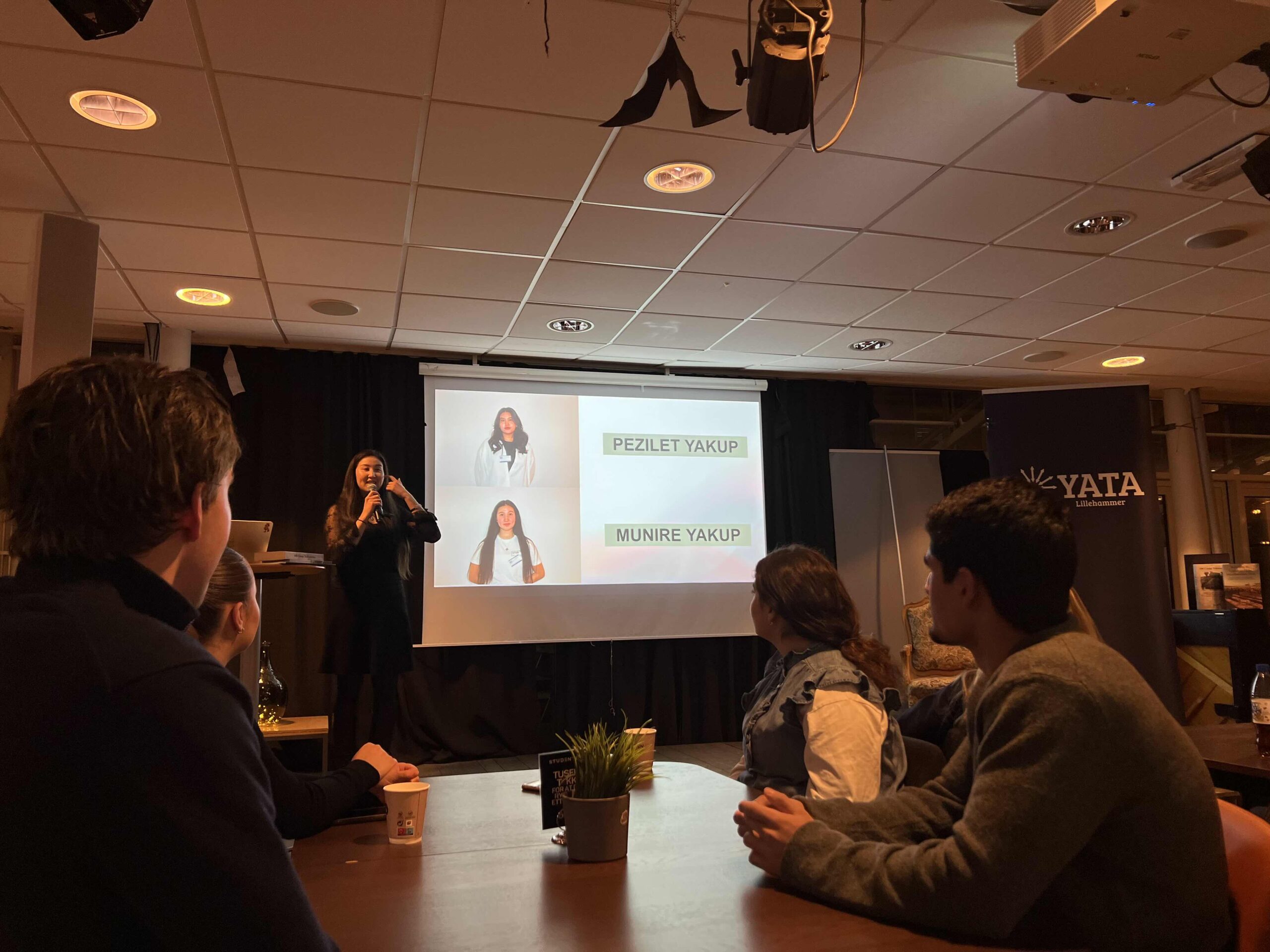On November 4th, 2025, Munire Yakup and Pezilet Yakup delivered a lecture at the University of Innlandet in collaboration with YATA Lillehammer (Youth Atlantic Treaty Association). The event focused on the ongoing Uyghur crisis, with particular attention to the themes of transnational oppression and the act of witnessing. The session also introduced the work of the Uyghur Transitional Justice Database (UTJD) and its mission to document and preserve evidence of human rights violations against Uyghurs and other Turkic peoples in East Turkistan.
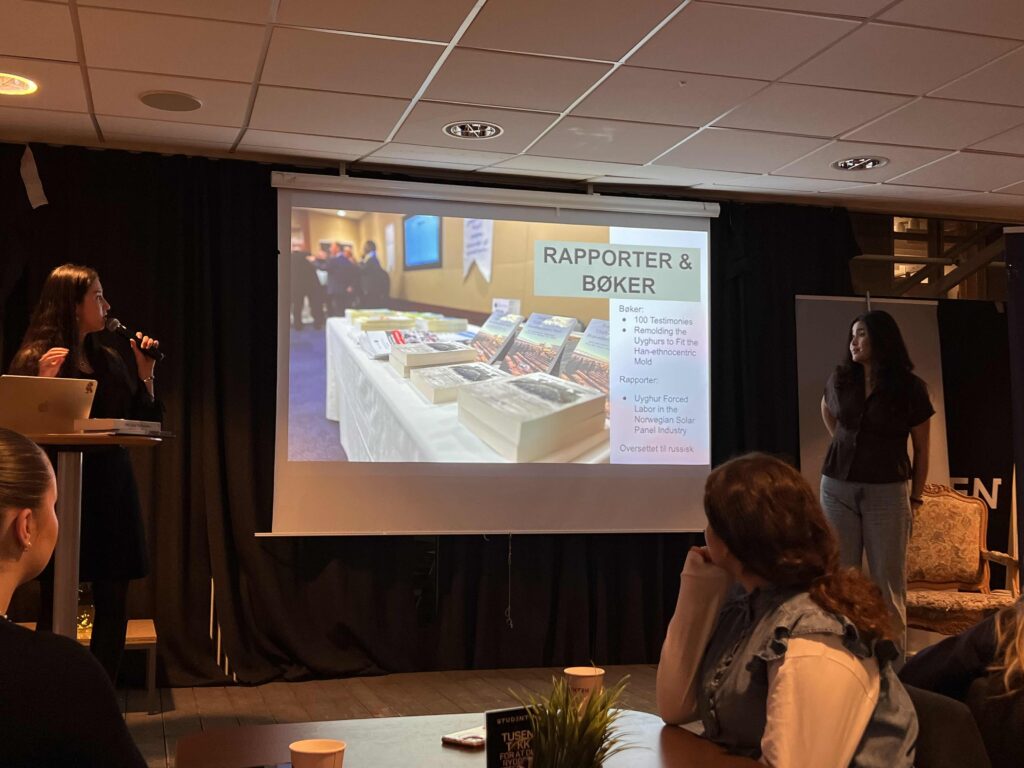
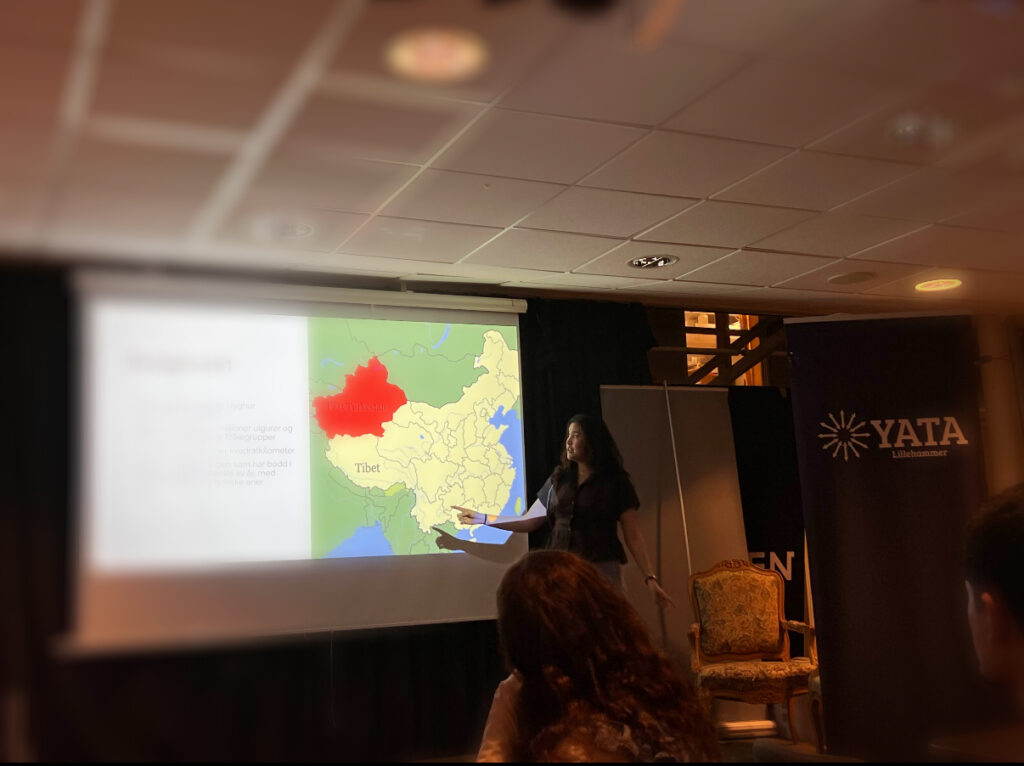
Addressing Transnational Repression
In their lecture, Munire and Pezilet Yakup provided an in-depth overview of the Chinese government’s campaign of repression in East Turkistan, where millions of Uyghurs and other Turkic peoples continue to face systematic persecution. They described how this repression extends far beyond China’s borders through mechanisms of transnational surveillance, intimidation, and coercion, affecting Uyghur communities worldwide.
By highlighting these practices, the speakers underscored the global dimension of the crisis – one that implicates states, institutions, and societies far beyond the region itself. The conversation emphasized the urgent need for international solidarity and institutional accountability in addressing the ongoing human rights violations.
Witnessing as Resistance
The lecture explored the concept of witnessing as both an ethical responsibility and a political act. For many Uyghurs in exile, speaking out means not only sharing their own experiences but also preserving the stories of those who can no longer speak. As Munire and Pezilet noted, witnessing becomes a way to resist erasure – to ensure that memory, evidence, and truth endure despite attempts to suppress them.
Introducing the UTJD
A central part of the discussion was devoted to introducing the Uyghur Transitional Justice Database (UTJD), an initiative dedicated to documenting, verifying, and preserving records of human rights abuses against Uyghurs and other Turkic peoples. The UTJD provides a secure and transparent platform for survivors, families, and researchers to contribute evidence that may support future processes of justice, accountability, and truth-seeking.
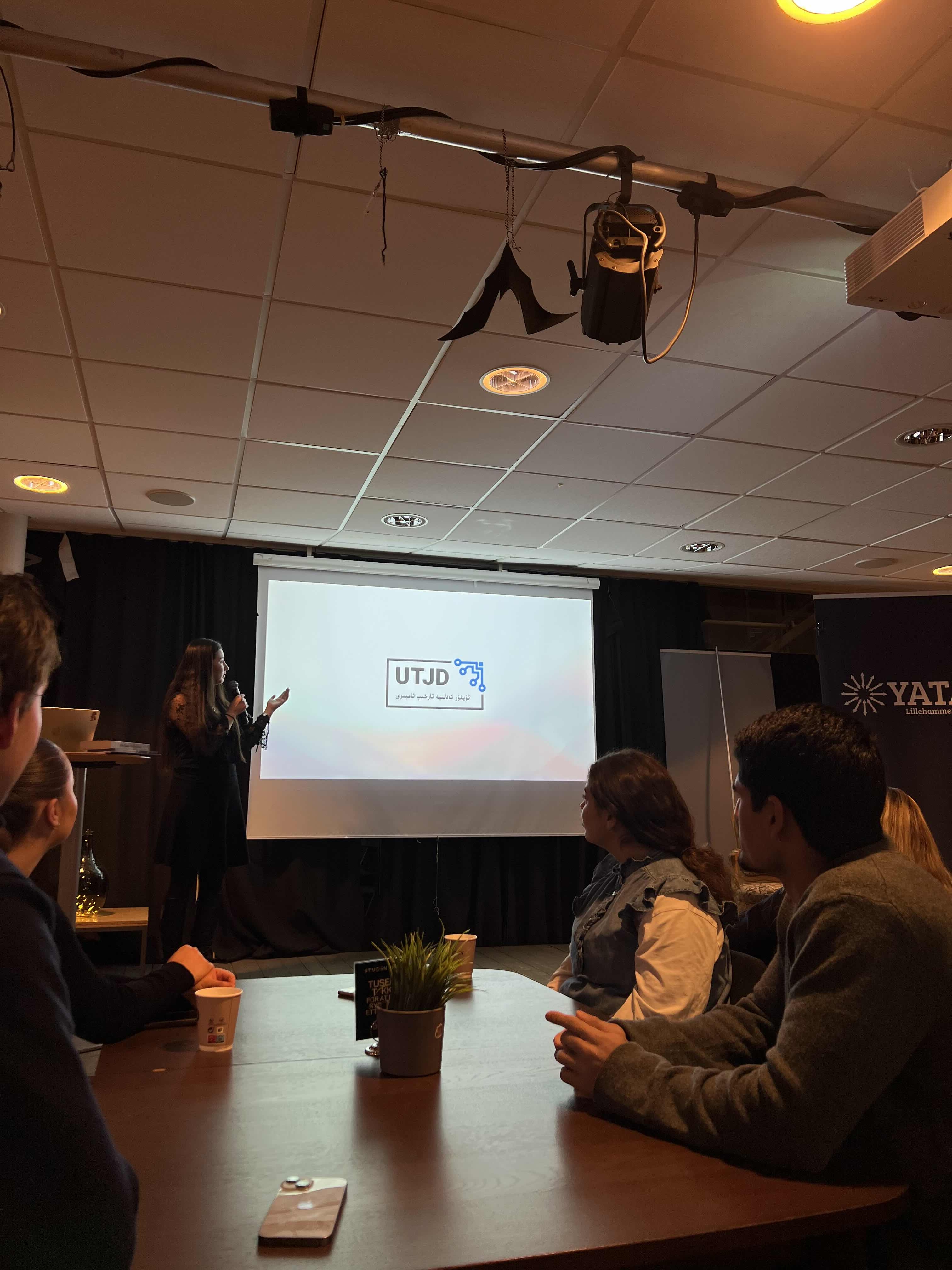
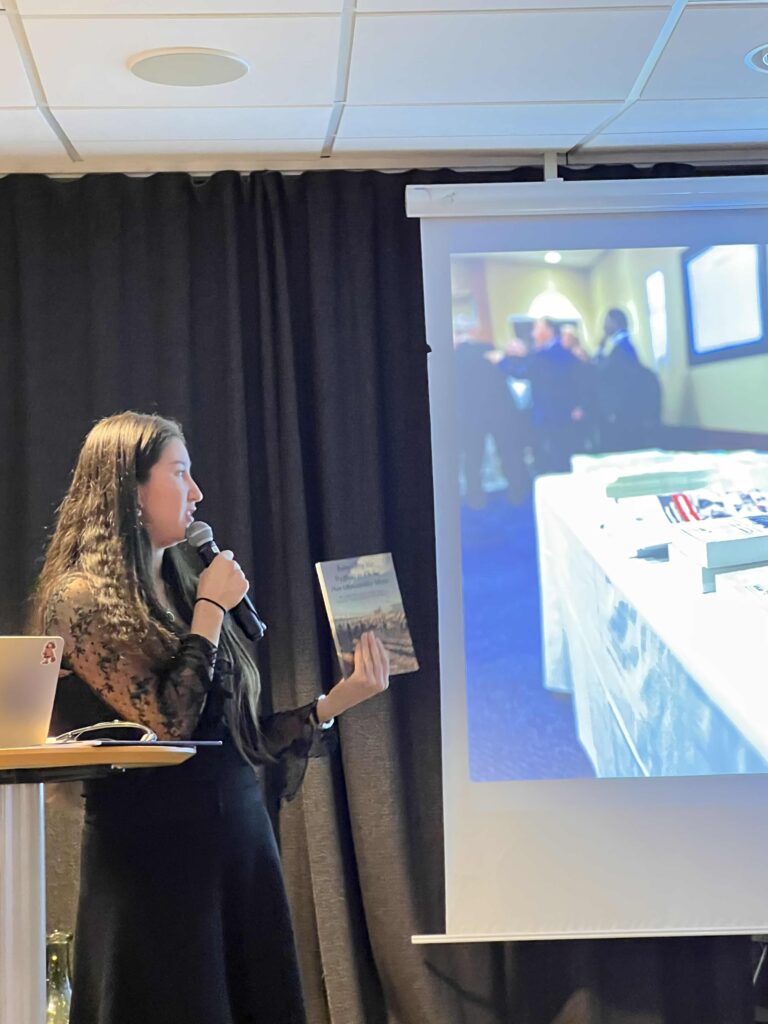
Through this work, UTJD aims to empower victims and their families, giving them agency in shaping the historical record and ensuring that the injustices they have endured are neither forgotten nor denied.
The event at the University of Innlandet provided an important platform for students, researchers, and the wider public to learn about and reflect on the Uyghur crisis, deepening understanding and awareness.
